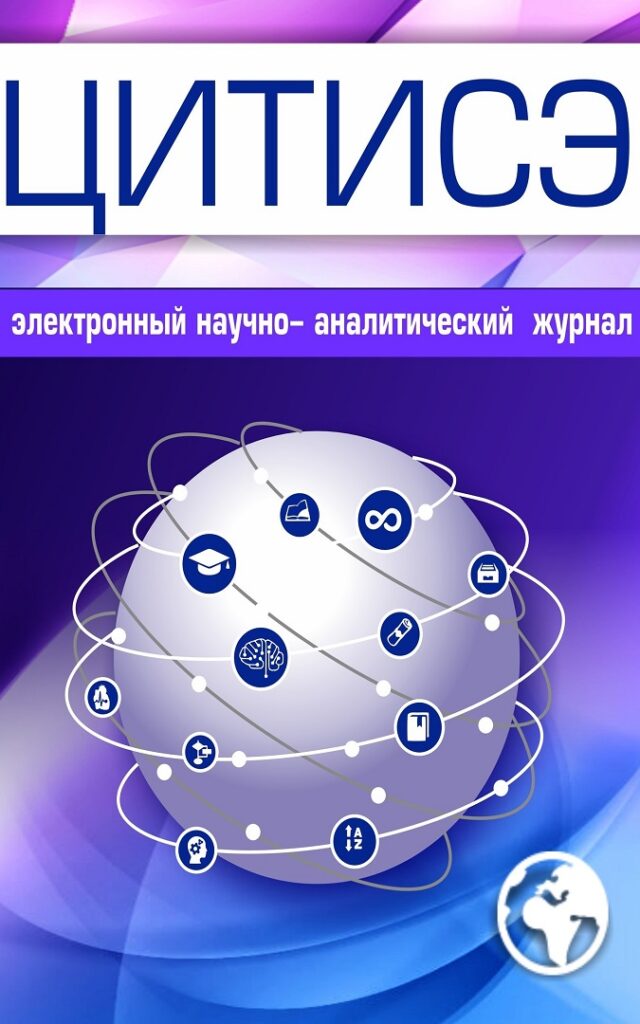Zakirov A., Nesterova V.
ANALYSIS OF THE POSSIBILITIES OF RUSSIAN SCHOOL EDUCATION IN THE IMPLEMENTATION OF THE CONCEPT OF HUMANITARIAN POLICY OF THE RUSSIAN FEDERATION ABROAD
Research Full article
UDC 005.8
Abstract. This article is devoted to the study of the prospects of the humanitarian policy of the Russian Federation on the territory of the countries of the Central Asian region through the dissemination of Russian education. By analyzing the existing socio-economic and cultural ties between the Russian Federation and the countries of Central Asia, the number of existing projects and programs in the educational sphere was revealed. The result of the analysis was the decision on the need for a more active policy in the educational sphere and closer participation in the formation of a unified educational space on the territory of the countries of the Central Asian region. Thanks to a sociological survey with a sample of more than 140 people, the level of interest of students in active participation in educational programs with the countries of Central Asia was revealed, as well as the most promising areas of cooperation. Conclusions. Central Asia is a promising region for the spread of Russia’s humanitarian influence, which is facilitated by the cultural and educational policy of the state and close cooperation in the field of creating a unified educational space. However, it is also necessary to create an image of the Central Asian region in the information field of Russia as an actively cooperating and promising region. In addition, it is necessary to expand the list of educational institutions that are actively working in the emerging educational space, and programs that contribute to the development of this industry.
Keywords: Decree of the President of Russia, Central Asia, School Education, Humanitarian Policy.
References:
- Antyukhova E.A., The development of global citizenship as an imperative of global educational policy//Humanities. Bulletin of the Financial University. 2020. Vol. 10. No. 6. pp. 19-24.
- Baltabayeva, A.T. The role of universities in the integration of education in Central Asia: Kyrgyzstan and Uzbekistan // ORIENSS. 2022. No.Special Issue 23. URL: https://cyberleninka.ru/article/n/rol-universitetov-v-integratsii-obrazovaniya-v-tsentralnoy-azii-kirgizstan-i-uzbekistan (accessed: 09.12.2022).
- Mironov V. V. The Bologna process and the national education system // Bulletin of OSU. 2006. No. 2-1. URL: https://cyberleninka.ru/article/n/bolonskiy-protsess-i-natsionalnaya-sistema-obrazovaniya-1 (date of application: 17.10.2022).
- Moiseeva I.Yu., Strengthening the position of the Russian language as a factor of Russia’s integration into the international educational space//Modern problems of science and education. 2016. No. 6. p. 399.
- Novikova I., Russian language in Thailand//Ethnodialogues. 2017. No. 1 (52). pp. 90-92.
- Orlova A.Yu., International Pedagogical Society in support of the Russian language as a resource for the development of personal and professional potential of a teacher//Ethnodialogues. 2022. No. 1 (67). pp. 21-30.
- Selivanova Yu.V., Zaitsev D.V., Social integration of personality: a sociological approach to the analysis of the concept // Ed. Sarat. un-ta Nov. ser. Ser. Sociology. Political science. 2014. No.2. URL: https://cyberleninka.ru/article/n/sotsialnaya-integratsiya-lichnosti-sotsiologicheskiy-podhod-k-analizu-ponyatiya (accessed: 08.12.2022).
- Sulimov S.I.,Education as a tool of cultural expansion//Ethnodialogues. 2021. No.1(63). pp.73-90
- Higher education space. URL: https://kpfu.ru/portal/docs/F1211491565/157_1_gum_12.pdf (date of application: 08.12.2022)
- Socio-cultural environment. URL: https://elar.urfu.ru/bitstream/10995/46035/1/ipoy-2016-37.pdf (accessed: 08.12.2022)


